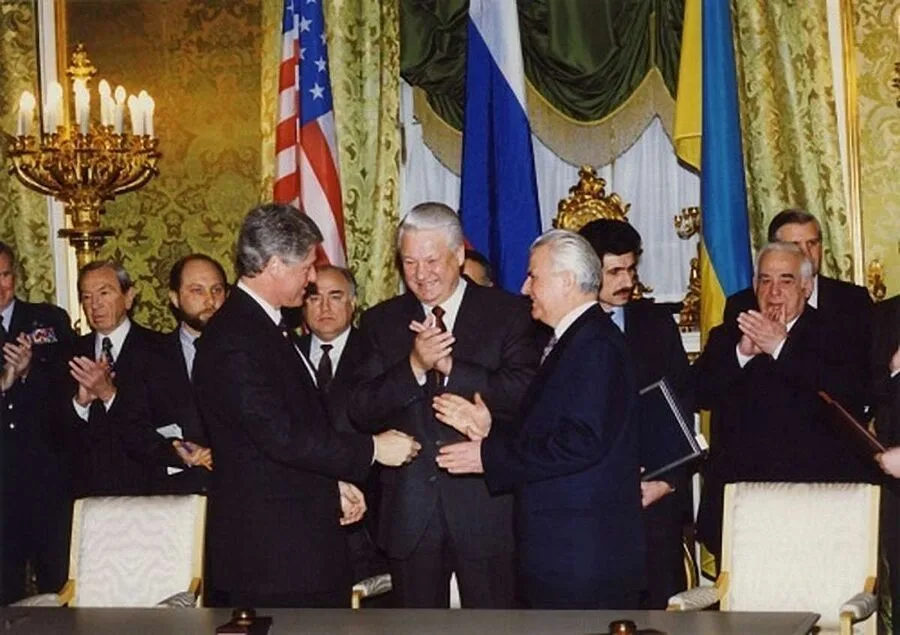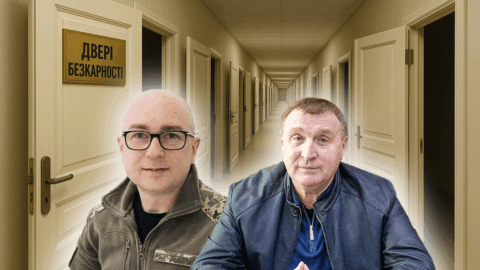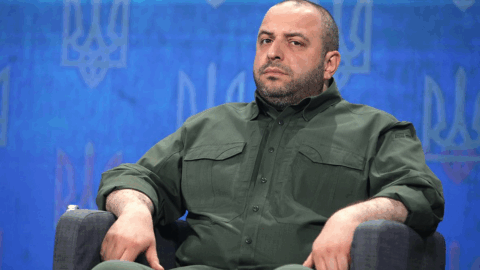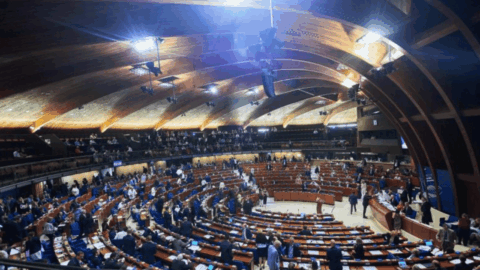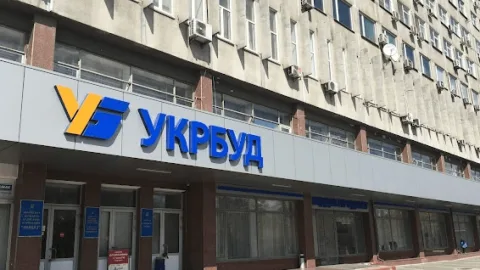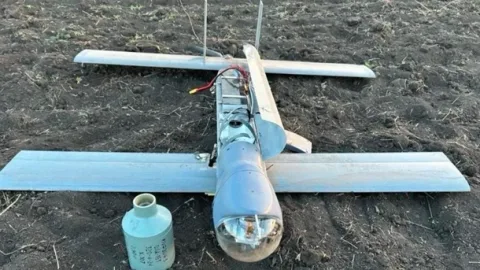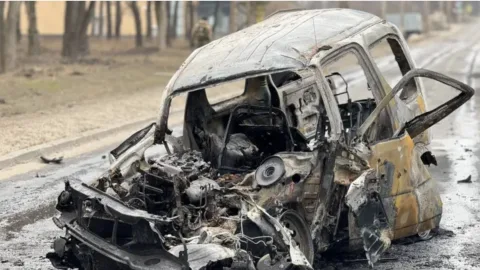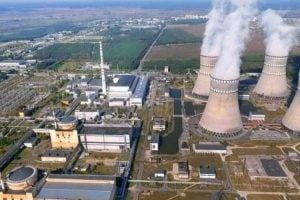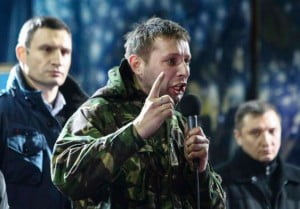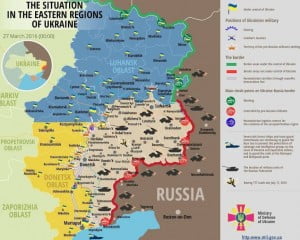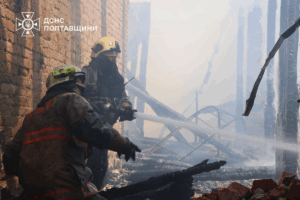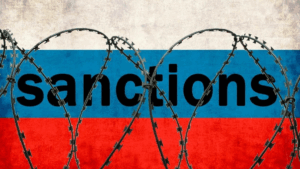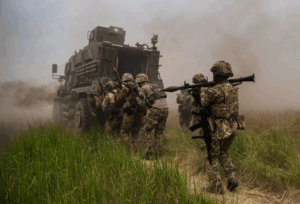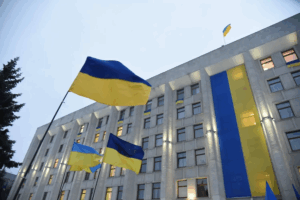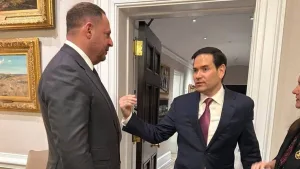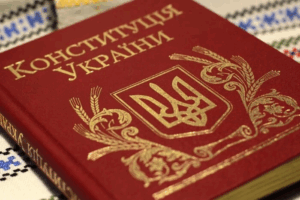Budapest memorandum: how legal security guarantees for Ukraine turns to global security system destabilisation.
Andrii Bezsmertnyi put the story of the Budapest Memorandum on the shelves. Or, as it is more accurately called, the Memorandum on Security Assurances in connection with Ukraine’s accession to the Treaty on the Non-Proliferation of Nuclear Weapons.
It was signed on December 5, 1994, in Budapest, and is therefore called the Budapest Memorandum. It was signed by Prime Minister Major of the United Kingdom, President Bill Clinton of the United States, President Boris Yeltsin of Russia, and President Leonid Kuchma of Ukraine.
What happened that made many countries think about the situation and eventually come up with and then sign the Budapest Memorandum. As you may remember, in 1991 a number of tragic and festive and majestic events took place for Ukraine. I would like to remind you of some moments that have been forgotten and for some reason are not emphasized enough. In particular, on August 1, 1991, the then President of the United States, George H.W. Bush, visited Kyiv unexpectedly for many. He delivered a very interesting speech in the Verkhovna Rada. From the rostrum of the parliament, he agitated Ukrainians not to leave the Soviet Union. However, it was not clear what he was campaigning for.
Because on March 17, a referendum was held, a referendum that actually said that Ukrainians would remain in the renewed Soviet Union. In fact, the July Declaration of State Sovereignty did not deny the possibility of the existence of a Union.
But events took their course. Having just spoken in the Verkhovna Rada and left to the calm applause of the audience, George W. Bush was plunged into a very, very, very cold shower. In the morning, the press in the United States, especially the New York Times, called this event a “Chicken Kiev”.
And this speech is a chicken speech. However, it will continue to be referred to simply as a chicken kiev, although in such phrases for Americans it meant that Bush was afraid. Why was he afraid? He was afraid because he knew that there were 4,883 nuclear warheads on the territory of Ukraine. And exactly half of them are on missiles of strategic importance. That is, these are ballistic missiles that are aimed at very, very long distances.
So it is obvious that the fear that was in the words and eyes of George H.W. Bush could not but affect the further course of events. Therefore, starting in 1991, and a few days later, there would be a coup in Moscow, followed by Ukraine’s decision to declare its state sovereignty, which would be confirmed by the overwhelming majority of the Ukrainian population in a referendum on December 1, 1991.
There is no chance of George H.W. Bush returning to the old conversation. However, elections will be held in 1994 and Leonid Kuchma, the second president of Ukraine, will take office in the fall. However, there would be very little time left, and the partners would be in a hurry to immediately sign an agreement that, from their point of view, fully guaranteed Ukraine’s security, support for Ukraine in case of aggression, and prohibited the use of nuclear and any other weapons against Ukraine.
I am quoting the text of the document. That is why it was believed that there were no problems, because the United States and Great Britain, and even more so Russia, guaranteed assistance to Ukraine.
Ukraine would make up its mind, it would become independent, and Ukraine would elect President Leonid Makarovich Kravchuk. Literally from the very first days, Bankova Street, where the first newly elected president of Ukraine will be located, will be attacked by envoys from Paris, London, and Washington regarding nuclear weapons.
The situation will be such that in 1993, at the end of it, it will be decided to hold early elections. But by that time, both Ukrainian President Kravchuk and U.S. President Bill Clinton, as well as British Prime Minister Major and Russian President Boris Yeltsin, will have a draft treaty on guarantees to Ukraine in connection with its accession to the nuclear nonproliferation treaty on their desks.
Thus, on December 5, 1994, in Budapest, in a beautiful setting, President Clinton, President Leonid Kuchma of Ukraine, President Boris Yeltsin of Russia and Prime Minister Major of Great Britain will meet and sign the relevant document.
From that day on December 5, 1994, the law by which Ukraine joined the Treaty on the Non-Proliferation of Nuclear Weapons will also come into force. What is the current situation? As soon as the document was signed, interpretations of its text began.
Therefore, in 2009, on the initiative of President Viktor Yushchenko, the Ministry of Foreign Affairs started work on consultations with partners to confirm real security guarantees. The idea was to hold consultations with all the signatories and reach an agreement or confirm that these were indeed real security guarantees, including in terms of providing assistance to Ukraine.
From the very beginning, the partners said that what else was needed was that you understood that we would not only never use any weapons against you, but that we would also guarantee you assistance.
After all, the memorandum was voted on by the UN Security Council shortly after it was signed in Budapest.
All permanent members voted for it, including China, Russia, France, the United States, and the United Kingdom.
Thus, no one had any suspicion that any of the signatories could use weapons against Ukraine and that all the signatory countries would provide assistance in case of a threat or aggression.
Moreover, when the document was voted on by the UN Security Council, it was joined by separate statements from France and China.
However, in 2011, in order to strengthen these positions, the Verkhovna Rada of Ukraine will adopt a resolution on June 6 asking the signatories of the Budapest Memorandum to confirm these positions.
The confirmation will indeed come from the United States of America, and will be followed by statements from the United Kingdom and France.
Moreover, the confirmation of such guarantees will be signed at that time between Ukraine and China.
Instead, the Russian Federation will make a statement that by confirming such guarantees, we will be obliged to give guarantees to Kazakhstan and Belarus, which, like Ukraine, have renounced nuclear weapons in connection with the signing and accession to the Treaty on the Non-Proliferation of Nuclear Weapons.
Already in 2011, one could suspect and understand what was behind this refusal to confirm the guarantees specified in the memorandum.
However, time passed.
Today, no matter how one describes this document, no matter how it is approached, no matter what translations of this document are analyzed, it is a unique international legal document. It is no different from treaties, communiqués, memoranda, declarations, statements, and so on. It is one of the components of the global security system.
Moreover, the UN Security Council’s vote in favor of this document actually made it part of the Nuclear Non-Proliferation Treaty.
It is necessary to pay attention to the law that was voted by the Verkhovna Rada during the ratification of the Treaty on the Non-Proliferation of Nuclear Weapons. Which points to these things. Moreover, if you look closely at the Memorandum on Security Assurances for Ukraine itself, it refers in several places to the UN Charter, to the Treaty on the Non-Proliferation of Nuclear Non-Proliferation Treaty, and the Helsinki Final Act.
This further makes it a fundamental normative international legal act in the field of global security.
Therefore, the talks that are taking place today about its incorrect translation, its shortcomings, are all just talks to discredit such a document, which I emphasize once again is a fundamental document, one of the founding documents of the current global security system.
What should be done in this situation, what else can be said about the Budapest Memorandum? It was only in 2022, on February 19, that President of Ukraine Volodymyr Zelenskyy asked the signatories to hold consultations.
Because already at that time, there was a clear threat to the territorial integrity and sovereignty of Ukraine in terms of the expansion of the attack and the threat of expanding the front of the Russian Federation’s aggression against Ukraine.
At that time, Crimea was already occupied and a war was going on in Donbas. In that situation, the partners had a rather peculiar reaction to the development of events.
In addition to the fact that the United Kingdom and the United States of America began the procedure of consultations on providing assistance, France would only eventually join this process, China would shift from one foot to the other and then repeatedly state that they were not involved in the emergence of this situation, and therefore they could not interfere in it.
They only declare the inadmissibility of the use of nuclear weapons. However, it is obvious that the memorandum refers not only to nuclear weapons, but also to all types of weapons and security guarantees to protect Ukraine’s sovereignty and territorial integrity in the event of not only the use of weapons against Ukraine, but also economic or other pressure.
However, it is obvious that the current watershed that has arisen between the signatories and those who have joined the treaty is divided into two parts.
These are the allies of Ukraine, such as the United States, the United Kingdom and France, who are trying to sincerely help Ukraine.
And these are the enemies of Ukraine.
I cannot say in this case that China is an opponent. It is a satellite of Moscow, which provides loans to the military-industrial complex of the Russian Federation, which supplies arms components, which supplies equipment, technologies and dual-use components.
All this shows that in the current situation it would be appropriate to convene the signatories of the Budapest Memorandum once again and decide to exclude from its membership those who do not fulfill its obligations and to move to a thorough and strict implementation of those obligations that in case of aggression against a state that voluntarily got rid of nuclear weapons, were taken by the enemy, especially by a permanent member of the UN Security Council.
Some people say that this document is not binding.
This is a very interesting term, because there are no non-binding international legal acts at all.
On what grounds do those who coin the term binding believe that some of the obligations of an international legal document may not be fulfilled?
Obviously, we are talking about those who at one time played into the hands of those who, perhaps in good faith, discredited this unique document of the international legal system and, above all, a document that can be attributed to the statutory legal acts of the global security system.

